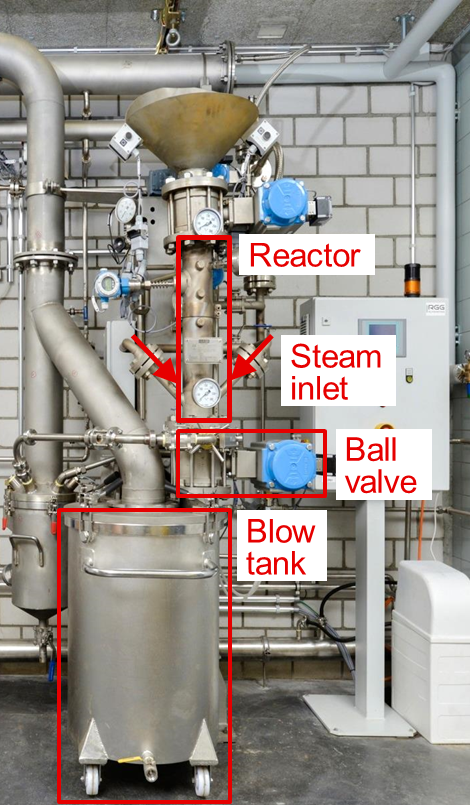Bioethanol from wood – The solution for a sustainable fuel supply in Switzerland?
Second generation bioethanol made from lignocellulosic biomass, like e.g. wood, offers great opportunities for a sustainable supply of liquid fuels. In collaboration with the Berner Fachhochschule the group of Prof. Rudolf von Rohr is developing a novel biorefinery concept to make biofuel production in Switzerland possible.
Lignocellulosic biomass like wood, energy crops or agricultural waste is the most abundant raw material on earth and a potential carbon-neutral source for the production of liquid fuels. A very promising approach is the production via enzymatic hydrolysis of cellulose and hemicellulose, sugar fermentation and ethanol purification. The lignin is separated and usually burned for energy production. Several physical and chemical barriers prevent the biomass from being enzymatically hydrolysed and make a pretreatment of the biomass necessary which disrupts the cell walls making the carbohydrates available for the enzymes.
In the group of Prof. Rudolf von Rohr we are working on a special steam-explosion pretreatment where we add some additional components to further increase the enzymatic sugar yields. Together with the research group of Prof. Studer at the Berner Fachhochschule we are working on a biorefinery concept with this special steam-explosion as a pretreatment method and a subsequent saccharification and fermentation for the ethanol production. Right now we are still working on pilot plant scale, but we already planning with our collaboration partners the construction of a commercial biorefinery.
The ESC member involved in this project is Prof. Rudolf von Rohr, head of Transport Processes and Reactions Laboratory (LTR).
